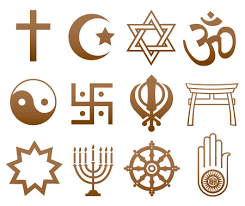Stamp: Highness Eagle (German Realm 1945)
Highness Eagle (German Realm 1945)
01 March (German Realm ) within release Courland goes into circulation Stamp Highness Eagle face value None No Face Value
| Stamp Highness Eagle in catalogues | |
|---|---|
| Michel: | Mi: DR FP16Pk |
Stamp is square format.
on postcard|
Data entry completed
26%
|
|
|---|---|
| Stamp Highness Eagle in digits | |
| Country: | German Realm |
| Date: | 1945-03-01 |
| Print: | Typography |
| Perforation: | comb 14 |
| Emission: | Military |
| Format: | Stamp |
| Face Value: | None No Face Value |
Stamp Highness Eagle it reflects the thematic directions:
Birds (Aves), a subgroup of Reptiles, are the last living examples of Dinosaurs. They are a group of endothermic vertebrates, characterised by feathers, toothless beaked jaws, the laying of hard-shelled eggs, a high metabolic rate, a four-chambered heart, and a strong yet lightweight skeleton. Birds live worldwide and range in size from the 5 cm (2 in) bee hummingbird to the 2.75 m (9 ft) ostrich. They rank as the class of tetrapods with the most living species, at approximately ten thousand, with more than half of these being passerines, sometimes known as perching birds. Birds are the closest living relatives of crocodilians.
A coat of arms is an heraldic visual design on an escutcheon (i.e. shield), surcoat, or tabard. The coat of arms on an escutcheon forms the central element of the full heraldic achievement which in its whole consists of shield, supporters, crest, and motto. A coat of arms is traditionally unique to an individual person, family (except in the United Kingdom), state, organisation or corporation.
Eagle is the common name for the golden eagle, bald eagle, and other birds of prey in the family Accipitridae. Eagles belong to several groups of genera, some of which are closely related. True eagles comprise the genus Aquila. Most of the 68 species of eagles are from Eurasia and Africa. Outside this area, just 14 species can be found—two in North America, nine in Central and South America, and three in Australia.
A symbol is a mark, sign, or word that indicates, signifies, or is understood as representing an idea, object, or relationship. Symbols allow people to go beyond what is known or seen by creating linkages between otherwise very different concepts and experiences. All communication (and data processing) is achieved through the use of symbols. Symbols take the form of words, sounds, gestures, ideas, or visual images and are used to convey other ideas and beliefs. For example, a red octagon is a common symbol for "STOP"; on maps, blue lines often represent rivers; and a red rose often symbolizes love and compassion. Numerals are symbols for numbers; letters of an alphabet may be symbols for certain phonemes; and personal names are symbols representing individuals.




